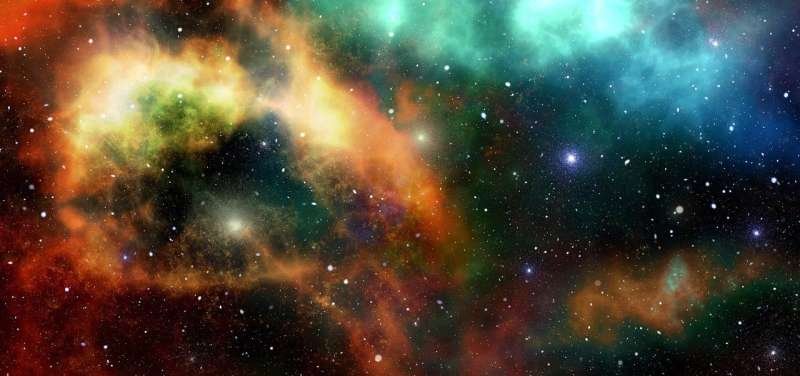
Credit: CC0 Public Domain
A citizen science project, which invites members of the public to take part in identifying the universe’s explosion, has identified 20 new astronomical discoveries.
More than 2,000 volunteers across 105 different countries worked with 600,000 teams over a six-month period.
The Kilonova Seekers project aims to find kilonovae—universal explosions of neutron stars and black holes that crash into distant galaxies.
Volunteers are asked to play “spot the difference” using data from two Gravitational-wave Optical Transient Observer (GOTO) telescopes, located on opposite sides of the planet—in La Palma, on Spain’s Canary Islands , and Australia’s Siding Spring Observatory. .
Dr. Lisa Kelsey, from the University of Portsmouth’s Institute of Cosmology and Gravitation, said, “The success of Kilonova Seekers demonstrates the importance of public involvement in scientific discovery. The contribution of citizen scientists really helps us to push the limits of our understanding of the universe.”
The first batch of Kilonova Seekers is presented in a paper published on Monthly Notices of the Royal Astronomical Society.
Although all 20 discoveries have not been classified, researchers have identified five as Supernovae, which are powerful and bright stellar explosions.
Supernovae are important in astronomy because they have the same peak brightness, which makes them useful as “common candles” to measure the distance of space. By knowing how bright these supernovae should be, astronomers can measure how far away they are, which helps measure the increasing expansion of the universe.
Another discovery that has been described is a different star disaster. This is a “binary star system” with a white star that steals matter from its companion, causing bright light rays.
Dr. Kelsey added, “The remaining 14 haven’t been grouped yet, so we don’t know exactly what they are.”
One of the main achievements of the project is the speed of classification and compliance from volunteers.
Dr. Kelsey said, “While we have volunteers from all over the world, there is almost always someone online looking at the data in real time.”
Scientists monitor signals from the gravitational wave observatories LIGO, Virgo and KAGRA, which launch the GOTO telescopes within 30 seconds to begin searching the sky. Any footage captured is shared with the public through Zooniverse, the largest and most popular platform for citizen science.
Kilonova Seekers was released publicly on Zooniverse on July 11, 2023 and had 1,000 shares within the first 30 minutes.
According to data obtained from Google Analytics, there are participants from every continent, except Antarctica. The wide availability of Zooniverse projects enables researchers to reach countries that have traditionally been underrepresented in the astronomical community.
The United States is the largest contributor, with a total of 1,284 users. The United Kingdom has almost half of that, with 615 users. However, users from Portugal are the most active, with more than 2,750 page views per person on average. .
Dr. Kelsey added: “This project not only contributes to the discovery of temporal phenomena but also improves the development of next-generation algorithms. This means that with the help of the public, we can create better ways to organize and understand information.
“This pace of human research is not sustainable without the dedication of our citizen scientists.”
Dr. Tom Killestein, from the University of Turku, Finland, said, “In addition to all the discoveries made by the volunteers, they have cataloged more than 20,000 gold samples that we have used to improve our machine learning teams. This Collaboration The dynamic between machine learning and citizen science will allow us to continue to improve our methods, and directly increase the number of discoveries of supernovae and other exciting objects.”
Additional information:
TL Killestein et al, Kilonova Seekers: The GOTO project for real-time population science in astronomy, Monthly Notices of the Royal Astronomical Society (2024). DOI: 10.1093/mnras/stae1817
Offered by the University of Portsmouth
Excerpt: Citizen science project announces 20 new discoveries in astronomy (2024, August 23) Retrieved August 23, 2024 from https://phys.org/news/2024-08-citizen-science -astronomical-discoveries.html
This document is subject to copyright. Except for any legitimate activity for the purpose of private study or research, no part may be reproduced without written permission. Content is provided for informational purposes only.
#Citizen #science #project #identifies #astronomical #discoveries